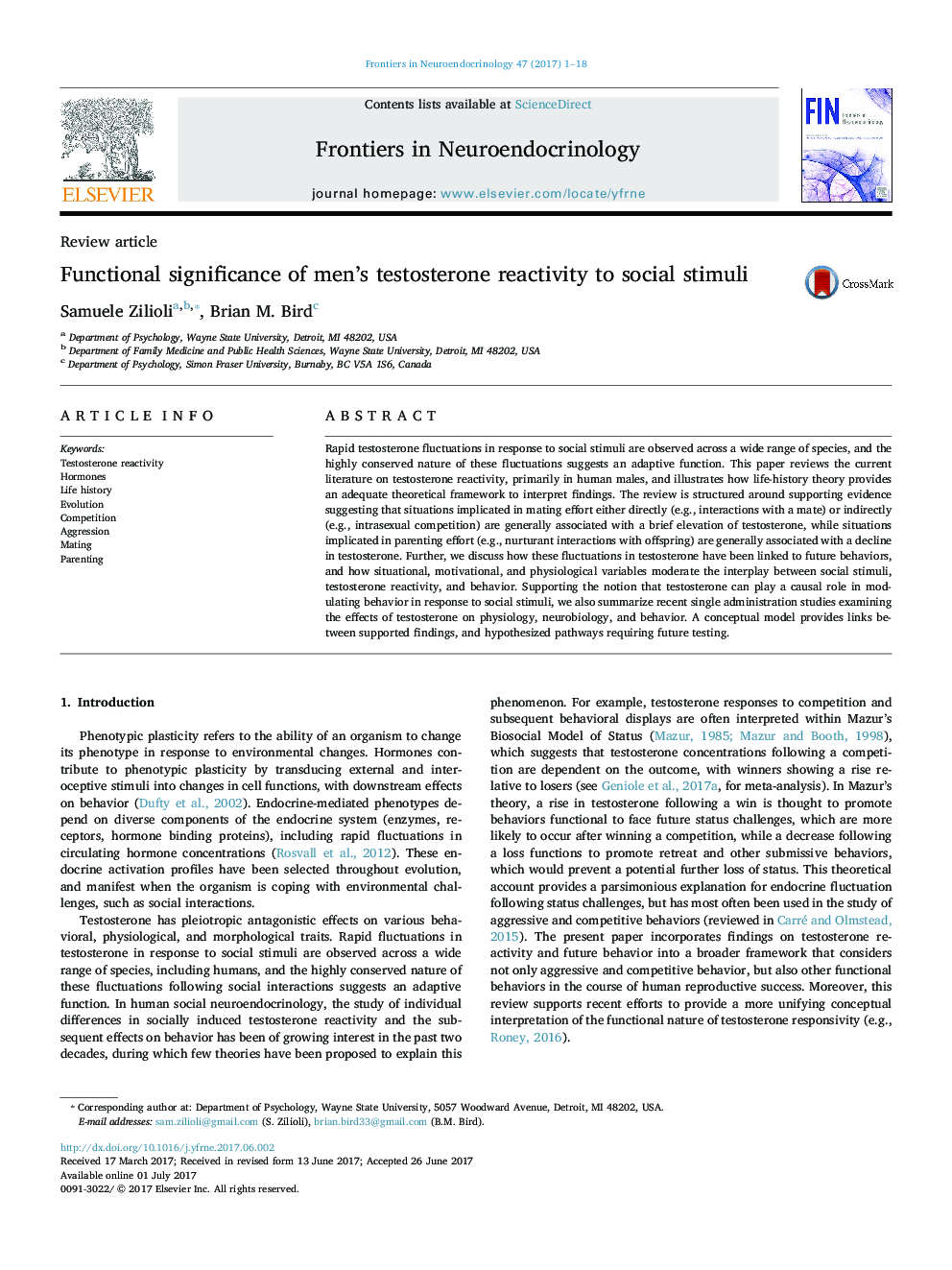| کد مقاله | کد نشریه | سال انتشار | مقاله انگلیسی | نسخه تمام متن |
|---|---|---|---|---|
| 5587484 | 1568816 | 2017 | 18 صفحه PDF | دانلود رایگان |
- Extensive review of T changes (ÎT) in response to evolutionarily salient contexts.
- Direction of ÎT (+/-) depends on context relevance to mating or parenting.
- ÎT predicts adaptive behavior (e.g., aggression, nurturant parenting).
- Summary of effects from recent single administration studies.
- Life history theory proposed as theoretical framework encapsulating findings.
- Model for ÎT â behavior patterns, and predictions for future work, are provided.
Rapid testosterone fluctuations in response to social stimuli are observed across a wide range of species, and the highly conserved nature of these fluctuations suggests an adaptive function. This paper reviews the current literature on testosterone reactivity, primarily in human males, and illustrates how life-history theory provides an adequate theoretical framework to interpret findings. The review is structured around supporting evidence suggesting that situations implicated in mating effort either directly (e.g., interactions with a mate) or indirectly (e.g., intrasexual competition) are generally associated with a brief elevation of testosterone, while situations implicated in parenting effort (e.g., nurturant interactions with offspring) are generally associated with a decline in testosterone. Further, we discuss how these fluctuations in testosterone have been linked to future behaviors, and how situational, motivational, and physiological variables moderate the interplay between social stimuli, testosterone reactivity, and behavior. Supporting the notion that testosterone can play a causal role in modulating behavior in response to social stimuli, we also summarize recent single administration studies examining the effects of testosterone on physiology, neurobiology, and behavior. A conceptual model provides links between supported findings, and hypothesized pathways requiring future testing.
115
Journal: Frontiers in Neuroendocrinology - Volume 47, October 2017, Pages 1-18
